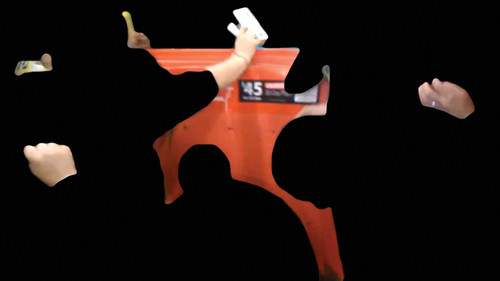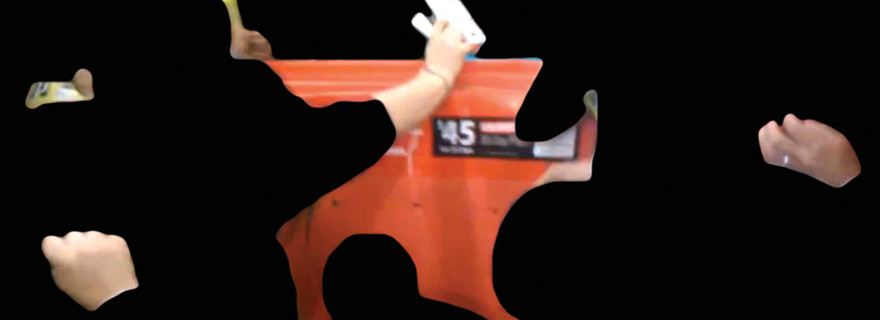B.
‘Reductive’ works consider mass consumption and the individual
Gallery
The pressures placed on the personal and individual by the phenomenon of mass promotion and consumption are explored through three video works and a sculpture in James Oram's new exhibition but it's worth it.
The exhibition is the latest in our Rolling Maul series and is open from 24 November to 16 December above NG, 212 Madras Street. In two videos Oram manipulates found footage of the infamous 'Black Friday' sales held by American chain store sales, isolating and magnifying smaller physical gestures within a frenzied crush of people. A third video sees the pages of a high-end design magazine torn out and 'consumed' by the artist who, after chewing them into a pulp, uses them to build a wall. Oram has used another reductive process to create Filler, a sculpture cast in plaster and builder's bog from the packaging used to house (and advertise) consumer goods.
Director Jenny Harper expects that audiences will find Oram's video work engaging.
'Although he has worked with a wide range of materials and techniques, Oram has consistently focused on the less-than-heroic aspects of individual existence and, in particular, the dynamics of personal struggle and failure. Our visitors were fascinated by his video Self Generating, which was shown at the Gallery in 2007, and I expect people will be intrigued and challenged by these latest works.'
Oram has a strong connection with the Christchurch arts scene, graduating with a Bachelor of Fine Arts in Sculpture from the University of Canterbury in 2003 and serving as chair of The High Street Project Trust from 2004 to 2005. Like many Christchurch artists, he lost his studio and all of his work in the earthquake of 22 February 2011. He currently works in Auckland.
Curator Felicity Milburn says Oram's works ask us to consider how the world of marketing encourages consumers to behave like 'part of the herd'.
'We're all targeted by advertisers to make us feel as though we can't live without certain products, all made to feel we have fallen short if we don't achieve a generic "ideal" lifestyle. James's videos and sculpture challenge this erosion of our individuality. Stripping away extraneous details he creates works that expose the empty superficiality of advertisers' promises and instead champion the small, imperfect and personal. The question - and challenge - posed by his works is: "how can I be happy being me, when everyone wants me to be someone else?"'

James Oram While supplies last 2012. Video. Reproduced courtesy of the artist and Chalk Horse
